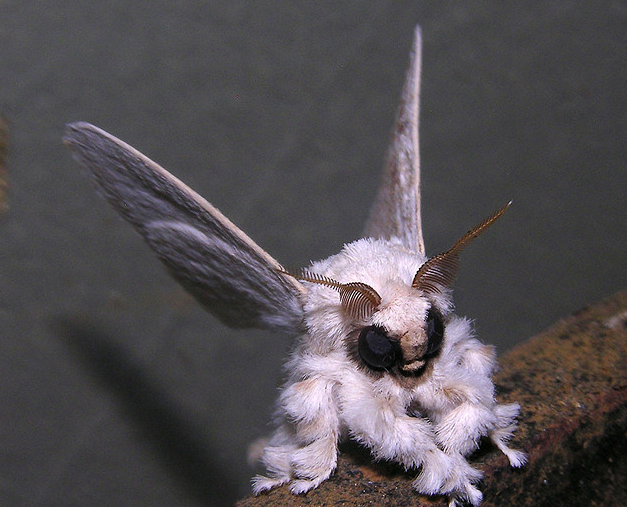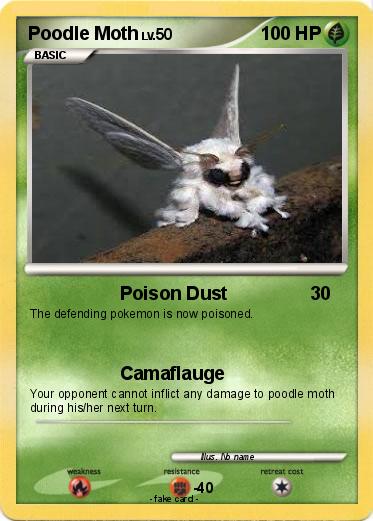Imagine having a pet that is not only unique but also resembles a fluffy poodle. Now, what if I told you that there is such a creature called the Venezuelan Poodle Moth? Yes, it may sound like a fantastical creature from a children’s book, but these moth species do exist in the wild. The Venezuelan Poodle Moth has gained attention for its adorably fuzzy appearance, leading some to wonder if they could be kept as pets. But can Venezuelan Poodle Moths really be domesticated?
The Venezuelan Poodle Moth, scientifically known as Artace cribraria, is a species of moth native to Venezuela. It was first discovered in 2009 by zoologist Arthur Anker during an expedition to the Gran Sabana region. This unique moth has captured the fascination of entomologists and nature lovers alike due to its fluffy appearance that resembles a poodle. Despite its cuteness, Venezuelan Poodle Moths are not suitable as pets. As wild creatures, they have specific needs and behaviors that cannot be easily met in a domestic environment. It is important to respect their natural habitat and leave them to thrive in the wild.
While the Venezuelan poodle moth may be captivating with its unique appearance, it is not suitable to keep as a pet. These moths are wild creatures and require specific environmental conditions and diets to thrive in their natural habitats. Additionally, it is important to respect and preserve the ecosystems these moths are a part of. It is best to observe and appreciate them from a distance, ensuring their survival and contributing to the preservation of biodiversity.

The Unique Beauty of Venezuelan Poodle Moths
Venezuelan poodle moths, also known as “Mariposa de la Esponjosa” in Spanish, are fascinating creatures that have gained attention for their unique appearance. These moths have a fluffy, poodle-like appearance, with a thick coat of fur covering their bodies. They were first discovered in Venezuela by Dr. Arthur Anker, an entomologist, in 2009. Since then, they have become a subject of curiosity and intrigue, with people wondering if they can be kept as pets. In this article, we will explore the possibility of Venezuelan poodle moths being suitable as pets.
Before we delve into the question of whether Venezuelan poodle moths can be pets, it’s important to understand a few key facts about these unique insects. Venezuelan poodle moths belong to the family Erebidae and are closely related to the better-known Venezuelan poodle moth. They are small in size, with a wingspan of approximately 3-4 centimeters. Their bodies are covered in dense, woolly fur, which gives them their distinct poodle-like appearance.
Now, let’s explore the question of whether Venezuelan poodle moths can be kept as pets.
1. Natural Habitat and Diet
Venezuelan poodle moths are native to the cloud forests of Venezuela, where they live in high-altitude regions. These moths have specific habitat requirements and are adapted to their natural environment. They are nocturnal creatures and are most active at night.
In terms of diet, Venezuelan poodle moths primarily feed on the nectar of various flowering plants. This means that their diet is highly specialized and difficult to replicate in a home environment.
Keeping Venezuelan poodle moths as pets would require recreating their natural habitat, including providing appropriate food sources. This can be challenging and may not be feasible for most people.
2. Fragile Nature and Special Needs
Venezuelan poodle moths have delicate bodies covered in fragile fur. They require specific environmental conditions to thrive, including the right temperature, humidity, and ventilation.
Additionally, these moths are sensitive to changes in their surroundings and can easily become stressed. They may not adapt well to captive environments and may suffer from health issues if not provided with the necessary care.
Their fur is also prone to damage and matting, which can require regular grooming. This grooming process should be carried out with utmost care to avoid injuring the moth.
3. Regulations and Conservation Status
In some countries, it is illegal to keep certain species of wildlife, including moths, as pets. It is essential to research and understand the local laws and regulations regarding the keeping of Venezuelan poodle moths before considering them as pets.
Furthermore, it is crucial to consider the conservation status of Venezuelan poodle moths. These moths are relatively rare and may be protected under various conservation programs. It is important to prioritize the conservation of these unique creatures and ensure their well-being in their natural habitats.
4. Appreciating Venezuelan Poodle Moths in Their Natural Habitat
While keeping Venezuelan poodle moths as pets may not be a feasible or ethical option, there are other ways to appreciate and learn about these fascinating creatures. Eco-tourism and nature conservation programs offer opportunities to observe and study Venezuelan poodle moths in their natural habitats.
By participating in these programs, individuals can contribute to the conservation efforts aimed at protecting these unique insects.
Comparing Venezuelan Poodle Moths as Pets: Pros and Cons
| Pros | Cons |
| Unique and fascinating appearance | Specialized habitat and diet requirements |
| Potential for scientific study and research | Sensitivity to changes and stress |
| Opportunity for conservation and eco-tourism | Legal and ethical considerations |
Can Venezuelan Poodle Moths Be Pets? (Key Takeaways)
- Venezuelan Poodle Moths are unique and fascinating insects that have gained popularity due to their fluffy appearance.
- While they may seem like adorable pets, Venezuelan Poodle Moths are wild creatures and not suitable for domestication.
- These moths have specific habitat and dietary requirements that cannot be easily replicated in a home environment.
- It is important to respect the natural habitats of these insects and allow them to thrive in their native ecosystems.
- If you encounter a Venezuelan Poodle Moth in the wild, it is best to admire it from a distance and not disturb its natural behavior.
Frequently Asked Questions
Venezuelan poodle moths have gained attention for their unique appearance and have become a subject of curiosity. Here are some frequently asked questions about whether they can be kept as pets.
1. Are Venezuelan poodle moths suitable as pets?
While Venezuelan poodle moths are fascinating creatures, they are not suitable as pets. These moths have specific needs and requirements that are difficult to replicate in a domestic setting. They require specific habitats, plant species, and environmental conditions to survive and thrive.
Attempting to keep a Venezuelan poodle moth as a pet would be challenging and potentially harmful to the moth. It is best to appreciate these unique creatures from a distance and respect their natural habitat.
2. Can Venezuelan poodle moths be domesticated?
No, Venezuelan poodle moths cannot be domesticated. Domestication involves a long process of breeding and genetic selection to modify the behavior and characteristics of a species. These moths are wild creatures with specific adaptations for survival in their natural environment.
Domestication of wild creatures like Venezuelan poodle moths is typically neither feasible nor ethical. It is important to respect the natural adaptations and behaviors of these species and let them exist in their intended habitat.
3. What do Venezuelan poodle moths eat?
Venezuelan poodle moths primarily feed on certain plant species found in their native habitat. Their diet consists of nectar, pollen, and other plant materials. These moths have co-evolved with specific plant species, and their survival depends on the availability of these food sources.
It is important to note that attempting to provide the appropriate diet for a Venezuelan poodle moth in a domestic setting would be extremely challenging. Their diet is intricately connected to the ecosystem they inhabit, and replicating this in captivity would be nearly impossible.
4. Can Venezuelan poodle moths be kept in captivity?
Given the specific requirements of Venezuelan poodle moths, it is not recommended to keep them in captivity. These moths are highly adapted to their natural environment and require specific conditions to survive, such as a specific climate, vegetation, and environmental factors.
Attempting to keep Venezuelan poodle moths in captivity would likely result in their stress, poor health, and ultimately, their demise. It is crucial to respect these creatures’ natural habitat and allow them to flourish in the wild.
5. How can we help conserve the Venezuelan poodle moths?
Conserving the Venezuelan poodle moths and their habitat is crucial to their survival. Here are a few ways to contribute to their conservation:
– Support conservation organizations that work towards protecting endangered species and their habitats.
– Educate others about the importance of preserving biodiversity and the unique species that inhabit our planet.
– Minimize habitat destruction and avoid engaging in activities that harm the natural environment.
By taking these steps, we can play our part in protecting the Venezuelan poodle moths and ensuring their continued existence in the wild.

The Venezuelan Poodle Moth: Real-Life ‘Pokemon’ with a Soundproofing Fur Secret!
In summary, Venezuelan poodle moths are not suitable as pets.
They are wild creatures that require a specific habitat and diet.
